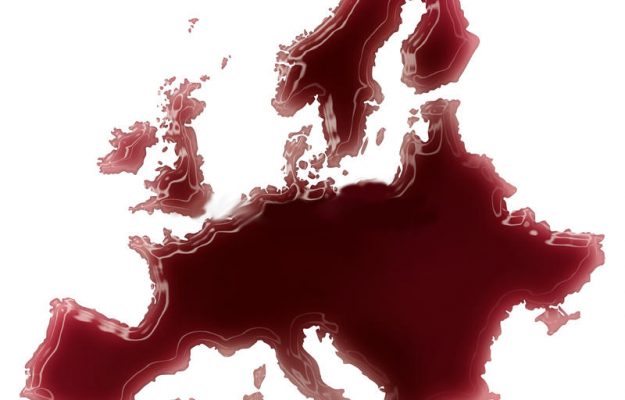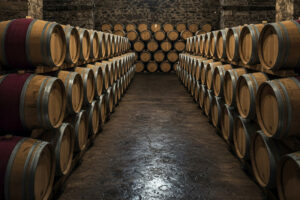Continuity on measures such as the Ocm Vino, in particular on the promotion front, improving and correcting where necessary and possible; progress on dossiers that are already well advanced, such as the one on labelling and nutritional information, which will also involve the wine supply chain, with the road mapped out that is to insert a good part of it online; greater clarity, but also measured flexibility, at the level of the general regulatory frameworks, starting with that on permits for new wine-growing installations; all with the awareness, on the part of wine producers, who are entrepreneurs in the territories, and dealers in the territories and markets of the world, we need an increasingly united Europe, cohesive and able to play the best of the great international games, even in terms of economic agreements, and that the sovereign winds blowing from all sides, even or especially for a product without borders and frontiers as Italian wine, which lives mainly on export, would be more harmful than ever, if they took even more strength. With Italy, as the leading country in European and world wine, having to try to maintain, or even better to increase, its importance in setting the European Union’s wine agenda. These are the expectations of the wine industry and its most important representatives, Federvini, Unione Italiana Vini and Federdoc, mentioned by WineNews, in view of the European elections on 26 May, which in Italy as in the other 27 EU countries, will form the new Parliament, which will face many challenges, starting with the completion of the broader reform of the Common Agricultural Policy (CAP), which represents a very important share (over 1,270 billion euros between 2021 and 2027) of the Community Budget (over 1,270 billion euros between 2021 and 2027).
“We hope that our elected representatives, as well as those of the other “wine countries”, Spain, Portugal, and France, above all, which dominate the world, will take an active part in the improvement of the regulations in force,” stressed Federvini chairman Sandro Boscaini, “always bearing in mind that the benefits that Europe has brought to our country, our agriculture and the in markets are of great value, and maintaining the sharing of certain objectives is of great importance. We say this to the elected Italians, but also to those of the other countries of the Europe of wine, a very characteristic sector of the EU, and which sees us as leaders in the world. On the subject of CAP and CMO, it is clear that support for promotion has been fundamental, in fact, without those contributions we will not have reached the same levels of those in exports, which is fundamental, because the domestic market, even if it has given some positive signals in recent times - stresses Boscaini - is still that of a country in difficulty, where spending capacity in real terms has decreased by 8.7% in the last 10 years”.
Continuity on the policies already in place is what is also hoped for by the Italian Wine Union, as President Ernesto Abbona explains: “we believe it is fundamental to maintain continuity in European and national policies that encourage the competitiveness of the sector, the growth of companies and exports. We have long been passionately engaged in various initiatives: from investments in sustainable farming techniques, which, with the recognition of World Heritage recently assigned by UNESCO to some wine-growing regions, prove to be widely within reach”.
“The first knot to face will be the next Ocm Vino, on which there is a work already set by the outgoing parliament, which we hope the new parliament will resume - adds Riccardo Ricci Curbastro, at the head of Federdoc - and that we do not start from scratch, with everything that would involve. Then there is the great theme of labeling, and we hope that the solution proposed by the supply chain of putting a lot of information online, is possible. Moreover, there will be the discussion of all the agri-environmental measures, which is also very important. The hope is that the new European Parliament will still have a “wine intergroup”, which is not an official group, but has always existed and is fundamental to the specificity of the sector. And the general hope is that among the MEPs we are going to elect there will be people who want to work on the wine sector”.
A unified overall vision, therefore, that of the Italian supply chain, which differs somewhat, however, on an important aspect, namely that of the current system of authorizations for planting vineyards, which provides for a maximum increase of 1% in the area planted with vines for each country.
In this sense, “the current system of authorizations continues to worry our production system and the UIV has already proposed several improvements in the reform of the CAP - stresses Abbona - as the request for an expansion of the basis for the calculation to be distributed annually to winemakers”, while for Federdoc is positive the possible shift, partly already transposed by the outgoing Parliament, of the first revision of the European regulation on the subject by 2050, and not by 2030 as initially planned, “in order to be able to make assessments on a ten-year basis, times that are normal in viticulture, since when we plant a new vineyard we are aware that we will obtain wine after 5-6 years,” says Curbastro.
Federvini’s position is more nuanced in this sense: “The problem is not so much the quantity of vineyard, but to increase the added value that is obtained from which vineyard. In any case,” stressed Boscaini, “it is natural to look at what Europe says in this sense, because the regulatory framework is of EU competence, but equally important is how we manage things as a country, and in this, also as a general relationship between the State and the Regions, it is up to us to improve things”.
However, for all the representatives of the supply chain, the hope is that the European Union will be stronger and stronger in international negotiations, especially in an increasingly complicated and tense world context, where new threats of tariffs arise at all times, and where, of course, the individual countries, especially in comparison with giants such as China and the U.S., would have a much lower negotiating power than United Europe.
On the other hand, “Europe is the world’s leading player in the production and export of wine, Italy participates in this leadership in a fundamental way, and therefore we must somehow also anticipate the European agenda on wine issues, and not just chase it - stresses Boscaini - we must take responsibility for being leaders, at least in the wine sector, and say it loud and clear to those who will represent us in Europe.
Copyright © 2000/2026
Contatti: info@winenews.it
Seguici anche su Twitter: @WineNewsIt
Seguici anche su Facebook: @winenewsit
Questo articolo è tratto dall'archivio di WineNews - Tutti i diritti riservati - Copyright © 2000/2026







































































































































































































